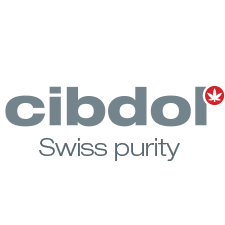Can Soridol CBD Cream Help With Psoriasis?
Last updated:
Published:

Cannabis is known to help treat the symptoms and even direct causes of a multitude of illnesses and health conditions, and does so by interacting with specific physiological systems. One area that cannabis medicine is emerging in is the realm of skin care.
There are many different active compounds within the cannabis plant that have been proven to offer health benefits. Many of these compounds are known as cannabinoids, which display anti-inflammatory and neuroprotective effects, among others. Of the cannabinoids, one of the most famous for its well-researched medicinal attributes is cannabidiol, or CBD. CBD has been shown to nurture the skin and may serve as a way to manage the symptoms of psoriasis.
HOW DOES CBD WORK ON YOUR SKIN?
CBD has risen to fame in recent years, with a windfall of research supporting its medicinal potential. Unlike its psychoactive cannabinoid cousin THC, CBD does not induce mind-altering effects. This fact is largely why CBD has become so popular; it offers symptomatic relief, without any psychoactive side effects.
Its non-psychoactive nature has also led to the cannabinoid becoming widely available in countries that have outlawed THC-rich cannabis due to its psychoactive effects. CBD gives people in these regions the chance to utilise cannabis medicine without breaking the law.
CBD is produced in small, mushroom-shaped glands found on cannabis flowers and leaves known as trichomes. CBD is the second most abundant cannabinoid in cannabis, and now that it has risen to fame, selective breeding programmes are producing strains much higher in CBD.
CBD can help with various health conditions, including psoriasis, due to the way it acts upon the body. CBD interacts with the body's endocannabinoid system receptors—CB1 and CB2—in an indirect fashion, and also binds to vanilloid, serotonin, PPARs, and GPR55 receptors.
ENDOCANNABINOID SYSTEM OF THE SKIN
CBD's effects on the endocannabinoid system (ECS) are important when it comes to alleviating skin conditions. The ECS is found within almost all tissues in the body, including the skin.
A paper published within the journal Trends In Pharmacological Sciences states that this system plays a fundamental role within the health of the skin, where it is implicated in numerous biological processes including cell proliferation, growth, differentiation, apoptosis, and hormone production.
It appears that the main function of the endocannabinoid system of the skin is to maintain homeostasis. When this balance is thrown off, conditions of the skin, such as psoriasis, can occur. It appears that the anti-inflammatory action of CBD can help to contribute to homeostasis.
WHAT IS PSORIASIS?
Psoriasis is a chronic, immune-mediated skin and joint disorder. Psoriasis primarily manifests as a skin disorder that appears in a variety of forms including plaque-type psoriasis, guttate psoriasis, inverse psoriasis, pustular psoriasis, palmoplantar psoriasis, and erythrodermic psoriasis.
Psoriasis usually causes red and flaky patches of skin to appear. Common locations include around the elbows, knees, scalp, and lower back. However, the condition can occur anywhere on the body.
The symptoms shared by all types of psoriasis include itching, burning, and soreness. These symptoms often arise as part of a cyclic pattern, flaring up for a period of a few weeks to a few months, and then disappearing for a period. For some, psoriasis may present as a minor irritation. For others, symptoms of the skin condition can become so severe that it reduces one's overall quality of life.
A paper published in the journal Nature discusses the prevalence and incidence of psoriasis. The condition is known to affect over 125 million people worldwide. It can manifest at any age, but typically occurs in people between the ages of 18 and 39, and between the ages of 50–69.
WHAT CAUSES PSORIASIS?
Psoriasis is caused due to an increased production of skin cells. Normally, skin cells are made and replaced over a period of every 3–4 weeks. When psoriasis occurs, this renewal takes place every 3–7 days instead. This rapid renewal leads to a buildup of skin cells that develop into the red, flaky, and itchy patches associated with the condition.
There are numerous causes of psoriasis. The condition has a strong genetic component and is known to run in the family. The condition can be triggered in those who are genetically susceptible via trauma, infection, and medications, to name a few. Certain conditions of the kidneys and liver have also been associated with the condition, as has emotional stress.
Ultimately, psoriasis is a disorder of the immune system. Part of the cause involves the migration of T cells into the dermis, triggering the release of substances such as cytokines that contribute to local inflammation and keratinocyte proliferation.
ABOUT OUR SORIDOL CREAM
At Cibdol, we recognise the potential that CBD has when it comes to treating psoriasis. Soridol CBD cream is a class 1 medical device, specifically designed to alleviate the symptoms of itch and pruritus associated with psoriasis. The CBD within the formula helps to nourish and protect the skin, contributing to normal cell growth. This unique liposomal formulation allows ingredients to penetrate deep into the skin where they are needed most.
Soridol has been carefully crafted to calm itching and to moisten and protect the skin using crucial vitamins and antioxidants. These are important for normal cell division and intercellular communication, which spur the maturation of keratinocytes without the harshness of chemicals. This improves the skin’s structural and defence systems, restoring the pathological pathways that trigger symptoms of psoriasis.
Anandamide, an endocannabinoid, has been shown to be beneficial by suppressing pathogenic T cell subsets, which are associated with inflammatory skin diseases. Incredibly, CBD has been shown to inhibit anandamide reuptake, blocking the endocannabinoid from being reabsorbed.
Soridol also contains vitamin D, a nutrient found in low levels within psoriasis sufferers. The lack of this nutrient may contribute towards thickened layers of dermis and itchy and inflamed skin. Soridol also includes omega 3, 6, 7, and 9 fatty acids, vitamin A, and inositol for enhancing overall skin health.








.png)




